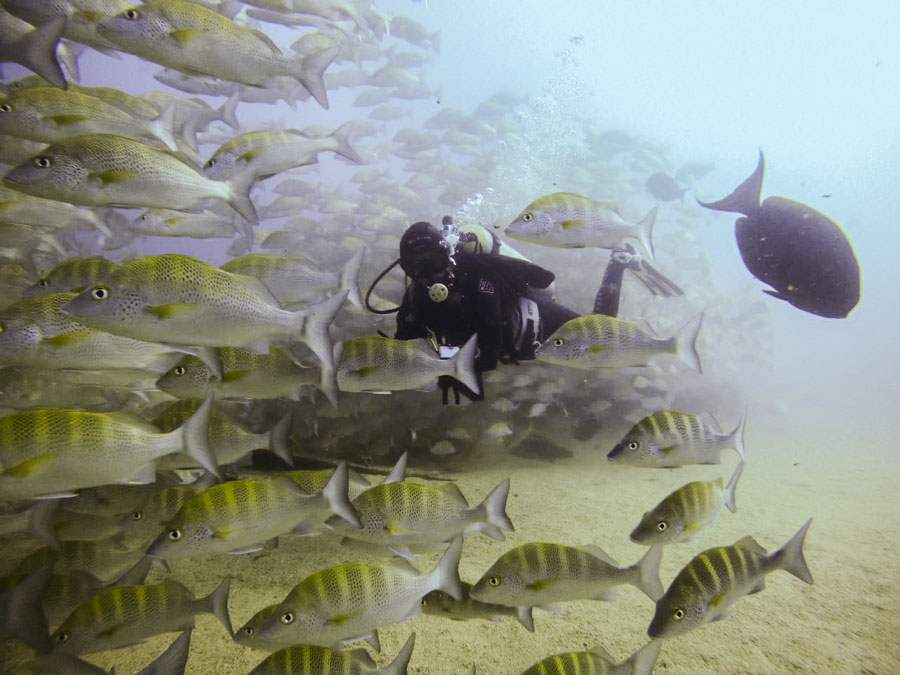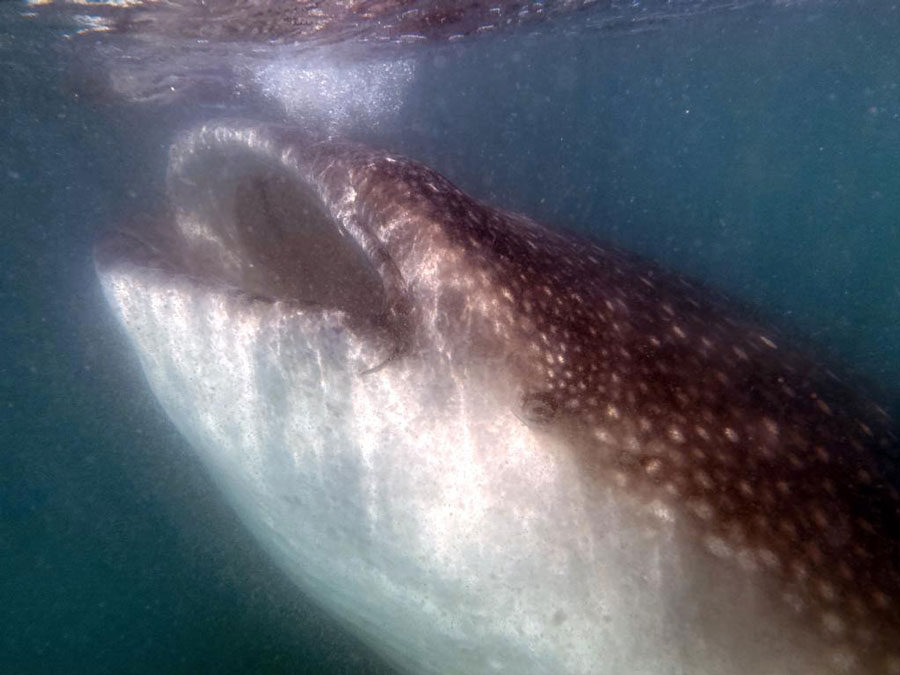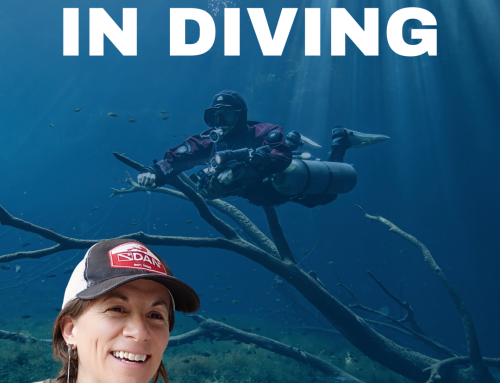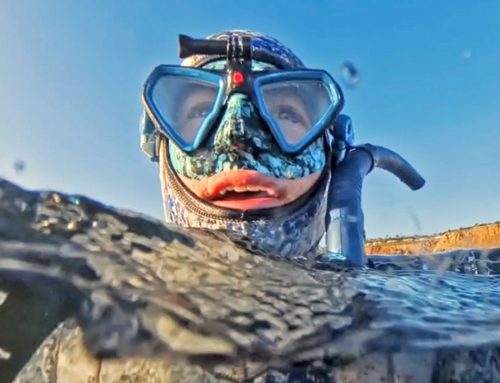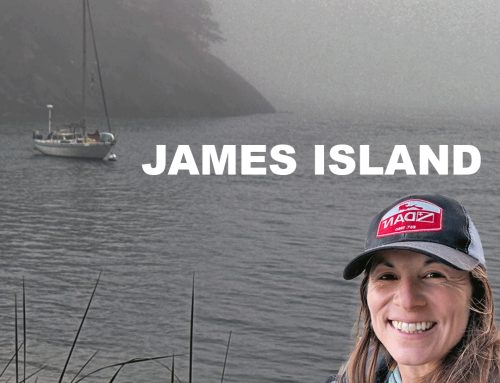Upgrades to my safety, thanks to DAN: Divers Alert Network
If you’ve been following my travels over the past few years, you may have noticed my comments about conservative dive planning while solo diving from my van. When I first got started in the van, I didn’t have the money to buy the gear I knew I needed. So now, as I’m planning my summer dive trip around Vancouver Island, I’m giving a breakdown on shore diving safety gear, including my latest upgrades, and why these items are important.
Emergency Oxygen
This is the most important upgrade to my diving van because pure oxygen is necessary for treating DCS. The amount of oxygen you should have depends on how remote you plan to explore. You should have enough to be able to breathe oxygen while waiting for or on your way to medical care. I have two bottles in the van, a small one which would be about 20 minutes of on-demand breathing, and a larger one which would be about an hour. For those of you who do technical diving, you can use your deco stage bottle as your emergency oxygen, but unless you have a specialized scuba tank to O2 adaptor and first stage, you won’t have the options of using the different kinds of free-flow emergency masks, allowing for extra care like rescue breaths with pure O2.
Diving Insurance
One thing I never go without is insurance. Regardless of how much diving you do, it is important to have diving-specific insurance because if you ever have an accident, you don’t want to be stuck paying for treatment on your own. As with all insurance, make sure you understand the terms and dive within the limits of your plan. I have used DAN since I started diving and have had everything from regular insurance to travel insurance and professional liability coverage. Become a member and check out plan options here.
Surface Markers
One of the most important things about being at the surface of the water is making it easy for people to see/find you.
- Dive float/flag: For a lot of shore dives, it’s smart to have a dive float and flag (unless it’s impossible due to conditions).
- SMB (Surface marker buoy): Use a large one so you will be more easily seen in bad weather and large waves.
- Mirror: Catch the sun and reflect the light to boat operators or people on shore.
- Small signaling flashlight: Attach it to your SMB to be visible in the water at night
- Whistle: Pair an audible marker with all your visual aids to have the best chance of getting help.
Other Equipment
I think everyone should have a cutting device. You have a few options, but my favorites are line cutters and dive sheers. The giant dive knifes are fine, but I find them to be overkill and not the right job in the case of an emergency.
Location Sharing and Beacons
Regardless of whether or not you buy yourself the specialized equipment I mention in this section, anytime you go diving, you should always share your dive plan with at least one person who is not in the water with you. Tell them your location and schedule, plus, give them a copy of your dive insurance.
PLB (Personal Locator Beacon) vs GPS/Satellite Messenger
These are not cheap pieces of equipment, but very helpful when diving in remote places, especially in strong currents or while solo diving.
A PLB is a Personal Locator Beacon and this is a great option for anyone who wants basic emergency support without a monthly subscription. Satellite Messengers are the better option if you want the ability to not only get rescue help, but also message home with updates when out of cell phone range. This capability comes at a price though with activation and monthly fees.
You may have heard of EPIRBs as well. These are larger devices registered to vessels, so if you’re out on a boat, it’s a good idea to know where the EPIRB is and how it works.
Many divers use the Nautilus Lifeline, which functions as a PLB to radio boats in the area when activated. I like the idea, but since I do other sports, I’d like something with more features that will work in the backcountry as well. That’s why I’m considering the Garmin InReach 2.
Join me on upcoming Azul Unlimited dive expeditions
See what trips are coming up. I always give my community first dibs on spots, so you can sign up for Patreon (and get trip discounts) or my email list to be the first to know about new expeditions in the future.
